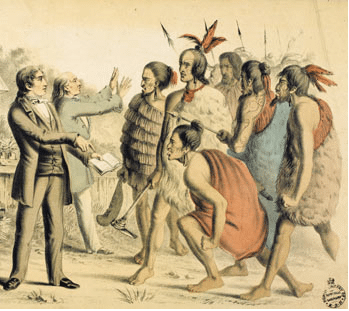Ben Hunt
Co-Founder and CIO
Ben Hunt is the creator of Epsilon Theory and inspiration behind Second Foundation Partners, which he co-founded with Rusty Guinn in June 2018.
Epsilon Theory, Second Foundation’s principal publishing brand, is a newsletter and website that examines markets through the lenses of game theory and history. Over 100,000 professional investors and allocators across 180 countries read Epsilon Theory for its fresh perspective and novel insights into market dynamics. As Chief Investment Officer, Ben bears primary responsibility for determining the Company’s investment views and positioning of model portfolios. He is also the primary author of materials distributed through Epsilon Theory.
Ben taught political science for 10 years: at New York University from 1991 until 1997 and (with tenure) at Southern Methodist University from 1997 until 2000. He also wrote two academic books: Getting to War (Univ. of Michigan Press, 1997) and Policy and Party Competition (Routledge, 1992), which he co-authored with Michael Laver. Ben is the founder of two technology companies and the co-founder of SmartEquip, Inc., a software company for the construction equipment industry that provides intelligent schematics and parts diagrams to facilitate e-commerce in spare parts.
He began his investment career in 2003, first in venture capital and subsequently on two long/short equity hedge funds. He worked at Iridian Asset Management from 2006 until 2011 and TIG Advisors from 2012 until 2013. He joined Rusty at Salient in 2013, where he combined his background as a portfolio manager, risk manager, and entrepreneur with academic experience in game theory and econometrics to work with Salient’s own portfolio managers and its financial advisor clients to improve client outcomes.
Ben is a graduate of Vanderbilt University (1986) and earned his Ph.D. in Government from Harvard University in 1991. He lives in the wilds of Redding, CT on Little River Farm, where he personifies the dilettante farmer that has been a stock comedic character since Cicero's day. Luckily his wife, Jennifer, and four daughters, Harper, Hannah, Haven and Halle, are always there to save the day. Ben's hobbies include comic books, Alabama football, beekeeping, and humoring Rusty in trivia "competitions".
Articles by Ben:
In which readers ask how to apportion the market effects of Fed jawboning and Fed asset purchases and sales (to the extent that the latter is not just part of the former’s Cartoon).
In tangible terms, I’m not sure that Michael Cohen’s flip on DJT has done much to change anything, as much as the left would like it do. From a Narrative perspective, however, it is a big deal.
In which we reference an interesting article from Colin Woodward arguing against Common Knowledge of the rural/urban divide in the United States.
We write about the Common Knowledge Game a lot in Epsilon Theory, because it’s the central game of crowds and narratives.
Common knowledge is something that we all believe everyone else believes.
Well, you know you’ve really made it in this business when Grant Williams shows up on your doorstep with his crew. What an honor to…
Part 1 of a three-part series on what it means to have a polarized electorate and a monolithic market. Today’s note: the Age of Ridiculousness and the decline and fall of the American Empire.
MLK Day reminds us of the foundations of a UNITED States of America, a reminder that has never been more important to take into our hearts.
It’s not too late, you know. We can still find that unifying narrative of what America can – and should – mean.
Part 13 of the Notes from the Field series discusses The Narrative Machine, which can help us see the invisible memes that drive our political behaviors. Because you’re smart enough to make up your own damn mind.
Two negative narratives have derailed ebullient markets – Inflation and Trade War. While I think both are here to stay, I’ve put inflation through the Narrative Machine first. The result? Inflation is Coming.
We live in a Cartoon Age, an era not of alienation per Karl Marx, but of alienation per Groucho Marx. What’s the cause, what’s the future, and what do we do about all this? It’s a TL;DR cri de coeur in Part 12 of Epsilon Theory’s Notes from the Field series.









